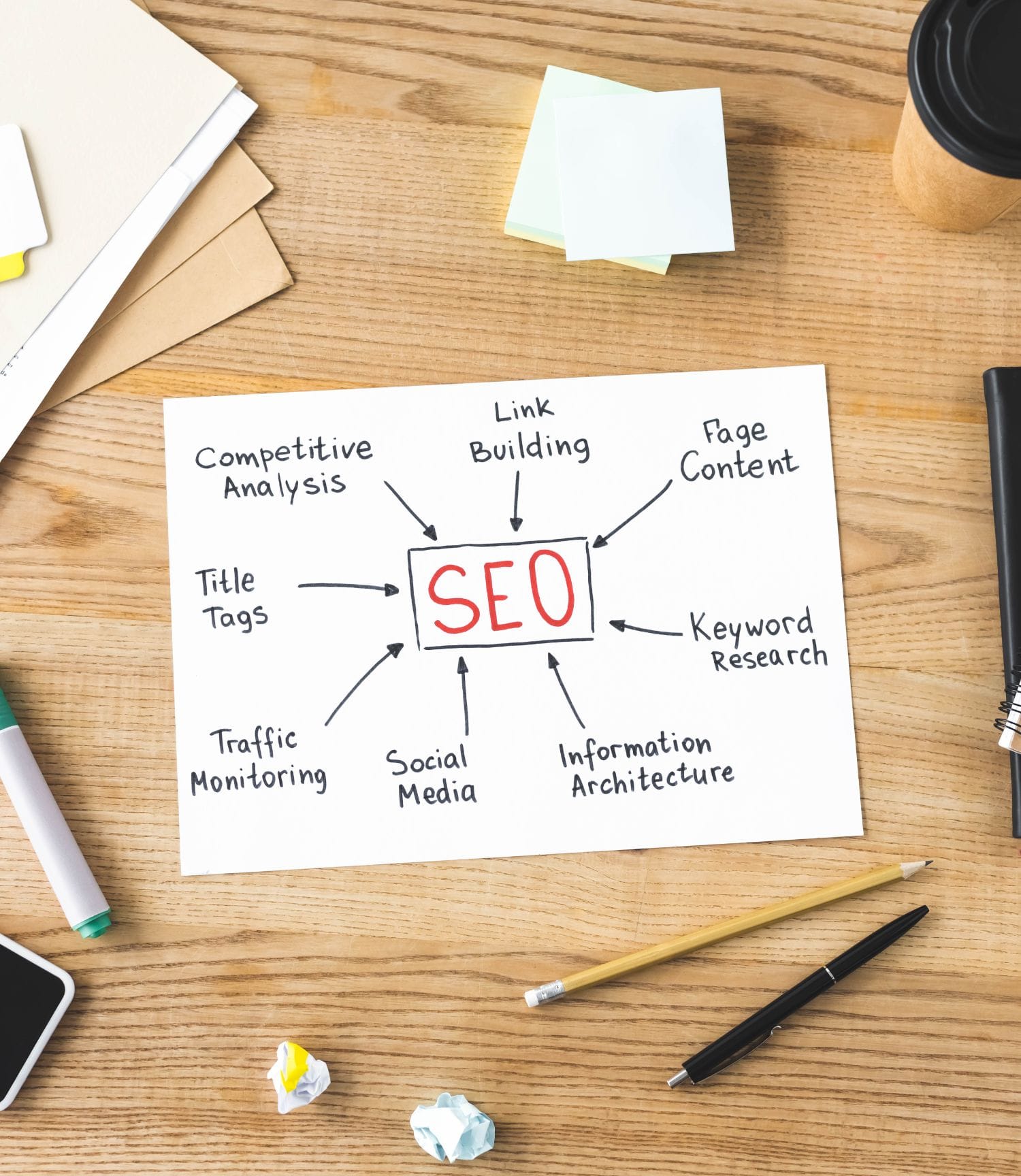In today’s digital world, having an online presence is not just an option — it’s a necessity. Consumers increasingly turn to the internet to find information, products, and services. However, simply having a website or an online store does not guarantee success. Your website must be easily accessible and visible to your target audience. This is where SEO (Search Engine Optimization) plays a crucial role.
What Is SEO?
SEO is the process of optimizing your website for search engines, such as Google, with the goal of increasing both the quality and quantity of organic (non-paid) traffic.
Through a combination of technical improvements and strategic planning, SEO helps search engines better understand your content and present it to users searching for relevant information.
Why Is SEO Important?
1. Increased Visibility and Traffic
Most users never go beyond the first page of search results. Effective SEO helps your website rank higher, increasing the likelihood of attracting more visitors.
2. Targeted Traffic
SEO helps attract users who are specifically searching for the products or services you offer — resulting in higher-quality traffic and better conversion rates.
3. Enhanced Trust and Credibility
Websites that rank high on search engines are perceived as more trustworthy. A well-optimized site with valuable, informative content builds confidence in your brand.
4. Better User Experience (UX)
SEO isn’t just about search engines — it’s about creating a seamless user experience. It involves faster loading times, easy navigation, and mobile responsiveness, making your site more user-friendly.
5. Long-Term Marketing Strategy
Unlike paid ads that offer temporary results, SEO is a long-term investment that continues to deliver results over time — as long as it’s maintained and updated regularly.
6. Competitive Advantage
In an increasingly saturated online environment, SEO can give you an edge over competitors who haven’t invested in optimization.
7. Cost-Effectiveness
SEO is one of the most cost-efficient marketing tools, targeting users already searching for your products or services and reducing customer acquisition costs.
Core SEO Strategies
- Keyword Research: Identify the terms and phrases your target audience uses and naturally incorporate them into your content.
- High-Quality, Relevant Content: Create valuable content that answers users’ questions, solves problems, and stays fresh and original.
- On-Page Optimization: Improve page titles, meta descriptions, headings, and URL structure for better search engine understanding.
- Technical SEO: Ensure your website is technically sound — fast, mobile-friendly, and with a proper data structure.
- Quality Backlinks: Build links from reputable, relevant websites to strengthen your authority and credibility.
- Local SEO Optimization: For businesses with a physical presence, optimize for local searches to attract nearby customers.
- Monitoring & Analytics: Use tools like Google Analytics and Google Search Console to track performance and refine your strategy based on data.
How to Get Started with SEO
- Research and Planning: Analyze your market, competitors, and audience. Identify the most valuable keywords and topics for your business.
- Content Strategy: Develop a content plan that answers your audience’s needs while naturally including your target keywords.
- Optimize Existing Content: Update and refine your current content with improved metadata, structure, and internal linking.
- Invest in Technical SEO: Fix errors, enhance loading speeds, and ensure your website is secure (HTTPS).
- Develop a Link-Building Strategy: Earn quality backlinks through collaborations, guest posts, and community engagement.
- Ongoing Monitoring and Optimization: Regularly analyze your site’s performance and adapt your SEO strategy as trends evolve.
Tips for Successful SEO
- Focus on the User: Always create content and experiences that are relevant and valuable to your audience.
- Stay Updated: Search engine algorithms change frequently — keep up with the latest best practices.
- Combine SEO with Other Marketing Channels: Integrate SEO with social media, email, and content marketing for maximum impact.
- Be Patient and Consistent: SEO takes time — consistent effort brings lasting results.
- Avoid “Black Hat” Techniques: Don’t use spammy tactics like keyword stuffing or buying links; they can lead to penalties.
Conclusion
SEO is an essential part of any business’s digital presence.
By implementing effective SEO strategies, you can improve your website’s visibility, attract targeted audiences, and increase conversions.
In an online world where competition grows daily, investing in SEO is vital for achieving long-term success.
🚀 Start optimizing your website today and unlock the full potential of the internet for your business growth.





